 W
WThe history of the Jews in Moldova reaches back several centuries. Bessarabian Jews have been living in the area for some time. Today, the Jewish community living in Moldova number less than 4,000 according to one estimate while local estimates put the number at 15–20,000 Jews and their family members.
 W
WBaruch Agadati was a Russian Empire-born Israeli classical ballet dancer, choreographer, painter, and film producer and director.
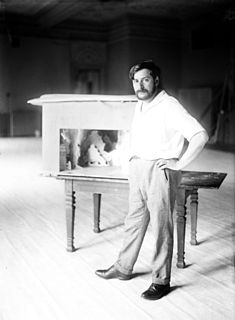 W
WBoris Izrailevich Anisfeld (1878–1973) was a Russian-American painter and theater designer.
 W
WLev Semyonovich Berg was a leading Russian geographer, biologist and ichthyologist who served as President of the Soviet Geographical Society between 1940 and 1950.
 W
WGary Bertini was one of the most important Israeli musicians and conductors.
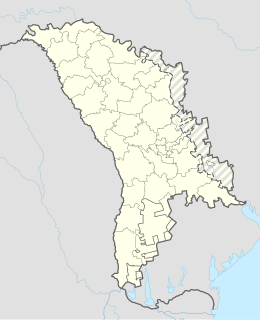 W
WTîrnova is a commune in Dondușeni District, Moldova. It is composed of three villages: Briceva, Elenovca and Tîrnova.
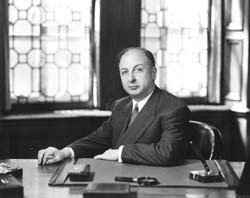 W
WSamuel Bronfman, was a Canadian businessman and philanthropist. He founded Distillers Corporation Limited, and is a member of the Canadian Jewish Bronfman family.
 W
WIosif Chișinevschi (1905–1963), born Iosif Roitman, was a Romanian communist politician. The leading ideologue of the Romanian Communist Party (PCR) from 1944 to 1957, he served as head of its Agitprop Department from 1948 to 1952 and was in charge of propaganda and culture from 1952 to 1955. He has been described as "Moscow's right-hand man in Romania".
 W
WBoris (Boruch) Mendelevich Dorfman Russian: Борис (Борух) Менделевич Дорфман Yiddish: באָריס (ברוך) דאָרפמאַן; born 23 May 1923, in Cahul, Bessarabia) was a Jewish public figure, writer, scholar of Jewish culture, and social activist.
 W
WWilliam Frederick Friedman was a US Army cryptographer who ran the research division of the Army's Signal Intelligence Service (SIS) in the 1930s, and parts of its follow-on services into the 1950s. In 1940, subordinates of his led by Frank Rowlett broke Japan's PURPLE cipher, thus disclosing Japanese diplomatic secrets before America's entrance into World War II.
 W
WRobert Frimtzis is the author of From Tajikistan to the Moon, a memoir of his life in Bălţi, Bessarabia.
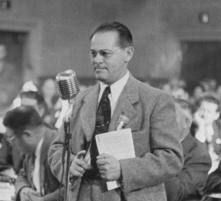 W
WBenjamin Gold (1898–1985) was an American labor leader and Communist Party member who was president of the International Fur and Leather Workers Union (IFLWU) from 1937 to 1955.
 W
WAvraham Granot was a Zionist activist, Israeli politician and a signatory of the Israeli declaration of independence.
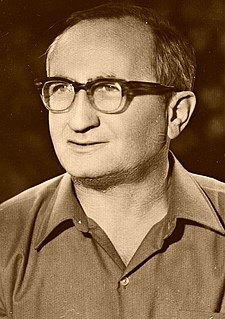 W
WZvi Guershoni was an Israeli politician who served as a member of the Knesset for the Alignment between 1969 and his death in 1976.
 W
WYisrael Guri was an Israeli politician who served as a member of the Knesset for Mapai between 1949 and 1965.
 W
WIra Jan is the pseudonym of the painter and writer Esther Yoselevitch Slepyan, although primarily known as Haim Nahman Bialik's mistress, she was also a member of the commune at Bezalel and among the founders of Gymnasia Rehavia.
 W
WJoseph Joanovici was a French Jewish merchant of scrap metal who supplied both Nazi Germany and the French Resistance during the German occupation of France in World War II.
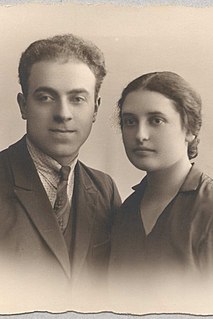 W
WYvonne Jospa was a cofounder and leading organizer of the Comité de Défense des Juifs in September 1942 with her husband Hertz Jospa, which saved over 3,000 Jewish children from deportation and death. Yvonne Jaspar was her pseudonym in the Belgian Resistance.
 W
WBaruch Kamin was an Israeli politician who served as a member of the Knesset for Mapai from 1953 until 1955.
 W
WBoris Davidovich Kamkov was a Russian revolutionary, a leader of the Left Socialist-Revolutionaries and a member of the Council of People's Commissars. He was killed during the Great Purge.
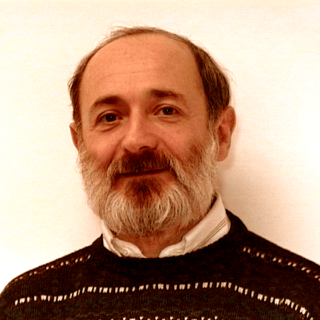 W
WBoris Katz is a principal American research scientist at the MIT Computer Science and Artificial Intelligence Laboratory at the Massachusetts Institute of Technology in Cambridge and head of the Laboratory's InfoLab Group. His research interests include natural language processing and understanding, machine learning and intelligent information access. His brother Victor Kac is a mathematician at MIT.
 W
WDavid Kessler was a prominent actor in the first great era of Yiddish theater. As a star Yiddish dramatic performer in New York City, he was the first leading man in Yiddish theater to dispense with incidental music.
 W
WHannah Lamdan was an Israeli politician who served as a member of the Knesset for several left-wing parties between 1949 and 1965.
 W
WJacob M. Landau is Professor Emeritus in the Department of Political Science at the Hebrew University of Jerusalem.
 W
WAbraham "Abba" Ptachya Lerner was a Russian-born British economist.
 W
WAda Maimon was an Israeli politician who served as a member of the Knesset for Mapai between 1949 and 1955.
 W
WYehuda Leib Maimon was an Israeli rabbi, politician and leader of the Religious Zionist movement. He was Israel's first Minister of Religions.
 W
WGrégoire Michonze (1902–1982) was a Russian-French painter, born in 1902 in Kishinev (Bessarabia), Russian Empire.
 W
WLewis Milestone was a Russian-American film director. He is known for directing Two Arabian Knights (1927) and All Quiet on the Western Front (1930), both of which received Academy Awards for Best Director. He also directed The Front Page, The General Died at Dawn (1936), Of Mice and Men (1939), Ocean's 11 (1960), and received the directing credit for Mutiny on the Bounty (1962), though Marlon Brando largely appropriated his responsibilities during its production.
 W
WMendel Portugali was one of the leading figures in the Second Aliyah and a founder of the Hashomer movement.
 W
WJoseph Rabinowitz, also Rabinovich was a member of a Jewish Christian congregation in Russia.
 W
WLeonte Răutu was a Bessarabian-born Romanian communist activist and propagandist. He was chief ideologist of the Romanian Communist Party during the rule of Gheorghe Gheorghiu-Dej, and one of his country's few high-ranking communists to have studied Marxism from the source. His adventurous youth, with two prison terms served for illegal political activity, culminated in his self-exile to the Soviet Union, where he spent the larger part of World War II. Specializing in agitprop and becoming friends with communist militant Ana Pauker, Răutu made his way back to Romania during the communization process of the late 1940s, and became a feared potentate of the Romanian communist regime. As head of the Communist Party's new Agitprop Section, he devised some of the most controversial cultural policies, and managed to survive Pauker's downfall in 1952.
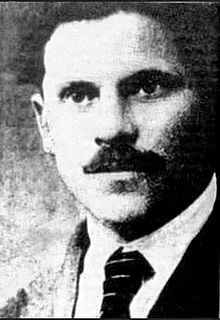 W
WSamuel (Sholem) Schwarzbard was a Jewish Russian-born French Yiddish poet. He served in the French and Soviet military, was an anarchist, and is known for the assassination of the Ukrainian national leader Symon Petliura. He wrote poetry in Yiddish under the pen name of Baal-Khaloymes.
 W
WBoris Solotareff was a Russian painter. He was active in Munich, Switzerland, and France, but spent the majority of his career in New York where he became a naturalized American citizen in 1949. Solotareff made use of a variety of styles; according to the Benezit Dictionary of Artists, his "work was in the mainstream of Eastern European Expressionism, with influences of Art Deco from the time when he lived in Paris." Solotareff's paintings have been exhibited widely, including the "Cinquantenaire Du Symbolisme" exhibition at the Bibliothèque Nationale (1936), the Vendome Galleries, and the "Exhibition of oils and water colors" at the Charles Barzansky Galleries from October 1–20, 1940.
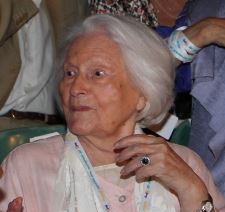 W
WLia van Leer was a pioneer in the field of art film programming and film archiving in Israel. She was the founder of the Haifa Cinematheque, the Jerusalem Cinematheque, the Israel Film Archive and the Jerusalem Film Festival.
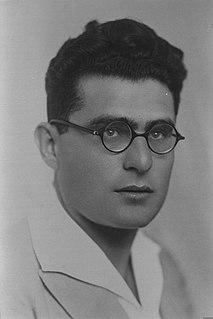 W
WZev Vilnay was an Israeli geographer, author and lecturer.
 W
WMaria Winetzkaja also seen as Maria Winetskaja; was an American mezzo-soprano opera singer born in Kishinev, in present-day Moldova.
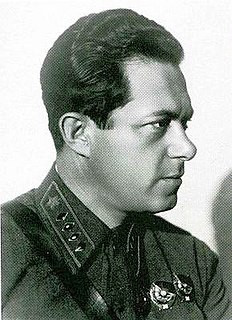 W
WIona Emmanuilovich Yakir was a Red Army commander and one of the world's major military reformers between World War I and World War II. He was an early and major military victim of the Great Purge, alongside Mikhail Tukhachevsky.
 W
WElizaveta "Zoya" Yulyevna Zarubina, born Ester Yoelevna Rosentsveig, was a Soviet spy, podpolkovnik of the MGB. She was known as Elizabeth Zubilin while serving in the United States, and also known as Elizaveta Gorskaya.